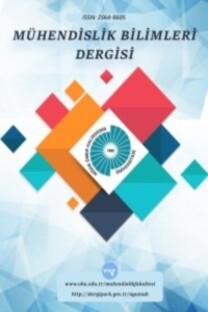KATI ATIK TOPLAMA AMAÇLI BİR AKILLI SİSTEMİN TASARIMI VE UYGULAMASI
Katı atık toplama sistemleri günümüz toplumsal yapısı ve şehirleşmede çok önemlidir. Oldukça yüksek maliyetler ödenerek ortaya konmuş olsalar da şehirlerde çalışan sistemlerin yeterli verimlilikte ve kalitede hizmet vermedikleri açıktır.Bu çalışmada; şehirlerde yüksek verimlilik ve düşük maliyetlerle (%50-80 daha az maliyetlerle) çalışabilecek yeni bir akıllı katı atık toplama sisteminin tasarım yaklaşımı, fizibilite etüdü ve yapılan uygulama ile kazanılan tecrübeler açıklanmaktadır.
Anahtar Kelimeler:
Katı atık, toplama sistemi, sistem tasarımı, optimizasyon, verimlilik
DESIGN AND IMPLEMENTATION OF A SMART SYSTEM AIMING TO COLLECT SOLID WASTE
Solid waste collection systems are very important in today’s social structure and urbanisation. Despite quite high costs are paid for them, it is clear that the waste collection systems presented in the cities does not offer a service with the sufficient efficiency and quality. This study explains the design approach, feasibility survey and the experiences acquired by means of the application conducted with regard to new smart solid waste collection system which can applicable with high efficiency and low cost (50% to 80%).
Keywords:
Solid waste, collection system, system design, optimization, efficiency,
___
- VICENTINI, F., GIUSTI, A., ROVETTA, A., FAN, X., HEB, Q., ZHU, M. and LIU, B., “Sensorized waste collection container for content estimation and collection optimization”, Waste Management, 29, 1467–1472, 2009.
- BONOMO, F., DURÁN, G., LARUMBE, F. and MARENCO, J., “A method for optimizing waste collection using mathematical programming: a Buenos Aires case study”, http://wmr.sagepub.com/content/30/3/311.
- ISMAIL, Z. and LOH, S.L., “Ant Colony Optimization for Solving Solid Waste Collection Scheduling Problems”, Journal of Mathematics and Statistics, 5 (3), 199-205, 2009.
- KARADIMAS, N.V., PAPATZELOU, K. and LOUMOS, V.G., “Optimal solid waste collection routes identified by the ant colony system algorithm”, Waste Manage Res., 25, 139–147, 2007.
- JOHANSSON, O.M., “The effect of dynamic scheduling and routing in a solid waste management system”, Waste Management, 26, 875–885, 2006.
- FACCIO, M., PERSONA, A. and ZANIN, G., “Waste collection multi objective model with real time traceability data, Waste Management”, 31, 2391–2405, 2011.
- VIOTTI, P., POLETTINI, A., POMI, R. and INNOCENTI, C., “Genetic algorithms as a promising tool for optimisation of the MSW collection routes”, Waste Manage. Res., 21, 292–298, 2033.
- NUORTIO, T., KYTOJOKI, J., NISKA, H. and BRAYSY, O., “Improved route planning and scheduling of waste collection and transport”, Expert Systems with Applications, 30, 223–232, 2006.
- AREBEY, M., HANNAN, M.A., BASRI, H., BEGUM, R.A. and ABDULLAH, H., “RFID and Integrated Technologies for Solid Waste Bin Monitoring System”, Proceedings of the World Congress on Engineering 2010, Vol I, WCE 2010, June 30 - July 2, London, U.K, 2010.
- KOP, Y., Fuzzy Multi-Criteria Decision Making in Solid Waste Collection System in Turkey, MSc Thesis, Galatasaray University, 2007.
- http://www.ebelediye.info/?pid=22721; Ziyaret Tarihi: 28.01.2014)
- ISSN: 2564-6605
- Yayın Aralığı: 4
- Başlangıç: 2017
- Yayıncı: Niğde Ömer Halisdemir Üniversitesi
